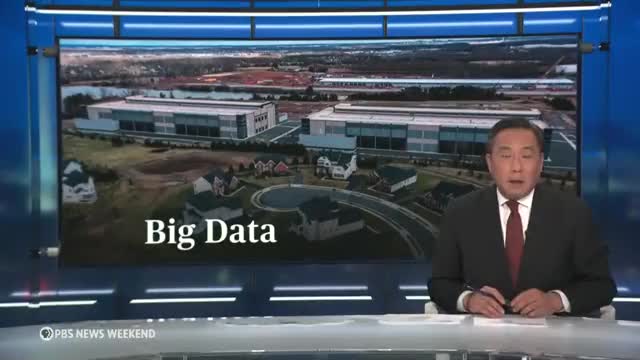Data centers surge as environmental costs escalate

This article was created by AI summarizing key points discussed. AI makes mistakes, so for full details and context, please refer to the video of the full meeting. Please report any errors so we can fix them. Report an error »

The rapid expansion of data centers, particularly in Northern Virginia, is raising significant environmental concerns as the demand for digital services surges. These facilities, which house thousands of servers, are essential for processing vast amounts of digital information, including emails, cloud storage, and streaming services. Currently, Northern Virginia is responsible for nearly 70% of global digital traffic, making it the largest data center hub in the world.
However, the environmental impact of these data centers is substantial. They consume approximately 2% of the United States' electricity and are among the top ten water-consuming industries, relying heavily on water for cooling systems to prevent server overheating. As artificial intelligence applications become more prevalent, their energy consumption is expected to increase sixfold, further straining resources.
Local officials express concerns that the current rate of data center growth is unsustainable. The reliance on fossil fuels to meet energy demands poses challenges to decarbonization efforts, as many data centers are located in densely populated areas, often near schools and residential neighborhoods. This proximity raises issues of noise pollution and increased stormwater runoff due to the concrete infrastructure.
The situation is compounded by the potential need to keep coal-fired power plants operational to support the energy demands of these facilities, contradicting commitments to transition to cleaner energy sources. As communities grapple with the implications of hosting these data centers, the balance between technological advancement and environmental sustainability remains a pressing issue.
However, the environmental impact of these data centers is substantial. They consume approximately 2% of the United States' electricity and are among the top ten water-consuming industries, relying heavily on water for cooling systems to prevent server overheating. As artificial intelligence applications become more prevalent, their energy consumption is expected to increase sixfold, further straining resources.
Local officials express concerns that the current rate of data center growth is unsustainable. The reliance on fossil fuels to meet energy demands poses challenges to decarbonization efforts, as many data centers are located in densely populated areas, often near schools and residential neighborhoods. This proximity raises issues of noise pollution and increased stormwater runoff due to the concrete infrastructure.
The situation is compounded by the potential need to keep coal-fired power plants operational to support the energy demands of these facilities, contradicting commitments to transition to cleaner energy sources. As communities grapple with the implications of hosting these data centers, the balance between technological advancement and environmental sustainability remains a pressing issue.
View full meeting
This article is based on a recent meeting—watch the full video and explore the complete transcript for deeper insights into the discussion.
View full meeting